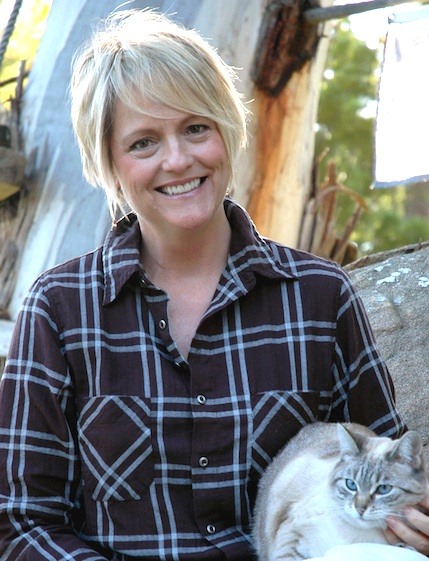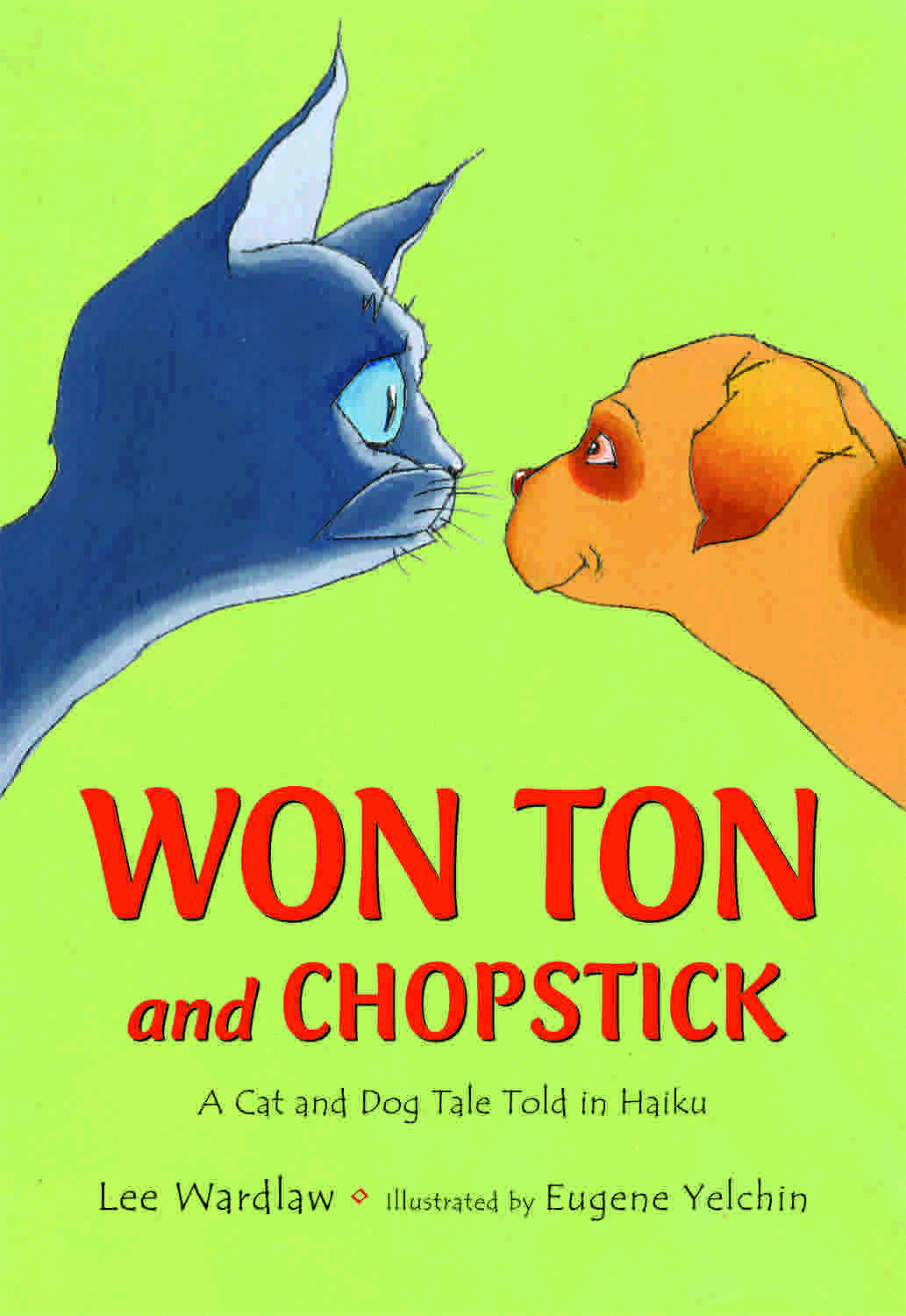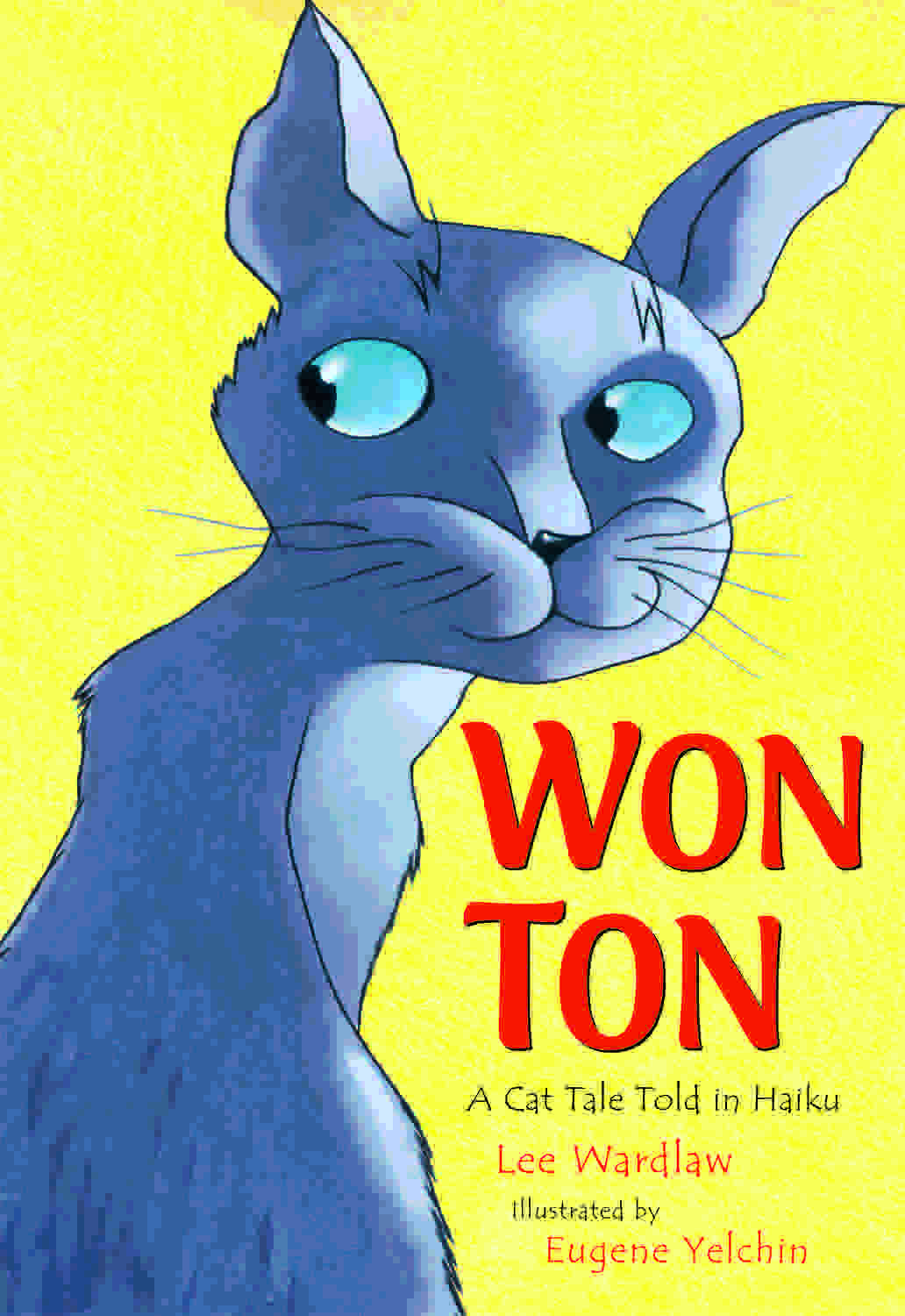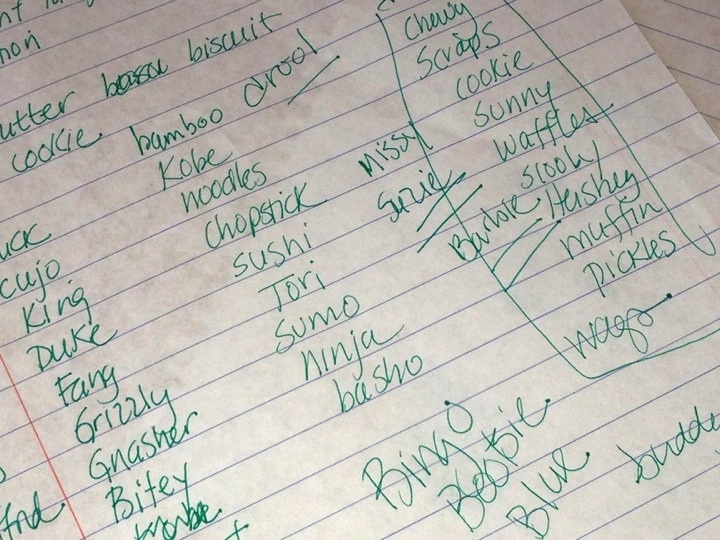
Lee Wardlaw wrote her first novel when she was in the second grade. It was about a girl named Teena Belle who lives with her 14 baby brothers and 14 baby sisters — all in diapers. Teena’s mother expects her to help with diaper duty. So, naturally, Teena Belle runs away from home.
“I’m sure the novel was inspired by the birth of my youngest brother (of two, not 14!) and my impending diapering services,” Lee told Cracking the Cover. “In sixth grade, I wrote (in long-hand) two 60-page novels, both about girls my age. (One was a mystery story with murders! The other was an adventure story . . . with murders!)”
The point, Lee says, is that she never intentionally sat down and thought: “I’m going to write for kids.” She wrote stories about kids because she was a kid. And, as the years went on, she continued writing about kids. “I’m not sure why,” she said. “The stories just came out — and continue to come out — that way. Maybe it’s because I don’t think I have anything to say to adults. Maybe it’s because I love the fresh way children look at the world. They’re like wide-eyed kittens, curious about, and ready to pounce on, anything that might be hiding around the next corner: Mystery! Adventure! Romance! Wheeee!”
 Lee is the author of 30 books for young readers, including “Won Ton: A Cat Tale Told in Haiku” and its follow-up, “Won Ton and Chopstick: A Cat and Dog Tale Told in Haiku.”
Lee is the author of 30 books for young readers, including “Won Ton: A Cat Tale Told in Haiku” and its follow-up, “Won Ton and Chopstick: A Cat and Dog Tale Told in Haiku.”
Won Ton’s tale began when Lee’s family adopted a cat named Papaya. A friendship developed between Papaya and Lee’s son: “From Day One they were buddies: reading together, sleeping together, playing together, even drinking out of the same cereal bowl together!” she said.
“Won Ton and Chopstick” starts with Won Ton and his boy enjoying a happy life. Everything changes, however, when a new puppy, Chopstick, arrives. The entire tale unfolds in haiku, a form of Japanese poetry featuring a 17-syllable verse with three metrical units of 5, 7, and 5 syllables. It sounds complicated, but it works particularly well for Lee’s stories.
 “When I first conceived the idea for ‘Won Ton,’ I thought long and hard about how this cat would relate his story,” Lee said. “Prose? Too ordinary. Rhyme? Too cutesy. And then it came to me: Haiku. Cats are haiku. They are both the epitome of Zen. They are present. They are in the Now. So it made sense that if a cat were to speak human, he would do it in haiku. And I knew that kids would relate to that sense of ‘Nowness.’ They want cookies Now. They want to watch TV Now. ‘Tomorrow’ is such a long, long time away.”
“When I first conceived the idea for ‘Won Ton,’ I thought long and hard about how this cat would relate his story,” Lee said. “Prose? Too ordinary. Rhyme? Too cutesy. And then it came to me: Haiku. Cats are haiku. They are both the epitome of Zen. They are present. They are in the Now. So it made sense that if a cat were to speak human, he would do it in haiku. And I knew that kids would relate to that sense of ‘Nowness.’ They want cookies Now. They want to watch TV Now. ‘Tomorrow’ is such a long, long time away.”
When the time came for Lee to revisit Won Ton, she knew she couldn’t continue without mixing things up a little. “Cats spend a lot of time napping, bathing, eating, napping, purring and napping,” she said. “That’s not a story — that’s boredom! I explain it to my readers this way: Every story has a main character who is facing a conflict, an important problem he desperately needs to solve. So I thought: what’s the worst problem I could give Won Ton? The first idea I came up with was: the family adopts another cat! But that didn’t seem problematic enough. … So then I thought: A dog! What better way to wreak havoc on Won Ton’s life than to force him to deal with another species!”

One of the hardest things about creating this new character was choosing his name, Lee said. “I wanted a moniker that would be a good ‘companion’ to Won Ton, as well as something a child could conceivably come up with. I did a lot of brainstorming; I also went outside and pretended to call the puppy, using various, potential names. Chopstick definitely won over Fang!”
Children love animal stories, Lee says, especially ones that are humorous. Add in Won Ton’s unique voice and a new way of telling the old “new-sibling-in-the-house-so-my-life-is-forever-ruined” story, and you have a good recipe for success.
Read a complete transcript of Lee Wardlaw’s interview with Cracking the Cover and learn more about why she writes and what book from her own childhood still resonates with her.
Lee Wardlaw swears that her first spoken word was “kitty.” Since then, she’s shared her life with 30 cats (not all at the same time!) and published 30 books for young readers, including Won Ton: A Cat Tale Told in Haiku, recipient of the Lee Bennett Hopkins Children’s Poetry Award, the Myra Cohn Livingston Award for Poetry, and the Cat Writers’ Association Muse Medallion. She lives in Santa Barbara, California with her family.
An Activity Kit for Won Ton and Chopstick and a Teacher’s Guide for Won Ton and Chopstick are both available online.
Learn more about Lee Wardlaw and “Won Ton and Chopstick”:
Monday, March 30 — Library Fanatic
Tuesday, March 31 — Kid Lit Frenzy
Wednesday, April 1 — Teach Mentor Texts
Thursday, April 2 — Sharpread
Friday, April 3 — A Foodie Bibliophile in Wanderlust
Saturday, April 4 — Booking Mama
Monday, April 6 — The Children’s Book Review
Tuesday, April 7 — 5 Minutes for Books
Wednesday, April 8 — Cracking the Cover
Thursday, April 9 — Unleashing Readers
Friday, April 10 — Word Spelunker
Saturday, April 11 — Bermuda Onion

1 Comment
Purrs of gratitude for the interview! ‘Twas FUN. Best fishes, Lee